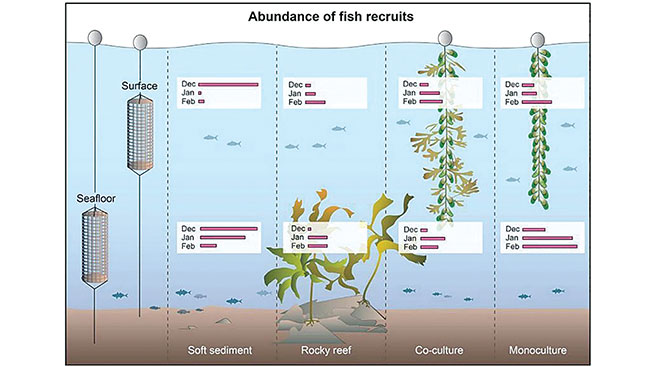
Research shows positive impacts of mussel and seaweed farms
March 5, 2024
By Matt Jones
 Photo credit: University of Auckland
Photo credit: University of Auckland New research out of the University of Auckland, in collaboration with The Nature Conservancy, is finally providing proof of something that practitioners have been saying anecdotally for years – that seaweed and mussel farming have positive impacts on wild fish around them.
“Settlement and recruitment of fish in mussel farms” examined how wild fish use shellfish and seaweed farms as potential breeding grounds.
“I was interested in understanding deeper biological interactions that fish have with farms to understand the importance of the mussel farms as habitat, not just the presence/absence of fish,” explained lead author, Lucy Underwood, a doctoral candidate with the University of Auckland.
“By investigating recruitment, this shows that fish see the mussel farms as a place to settle and as nursery habitat. Fish recruitment is a critical component of fish life histories.”
To emphasize those positive interactions, Underwood recommends that farmers time their harvests to exclude the period when fish are settling (which would be location-specific), and to adjust biofouling maintenance on lines so there is less disturbance to the lines. She also recommended that farmers understand the spatial and temporal mosaics of their farms.
“Farms are temporary and get harvested,” explained Underwood. “Therefore, by looking at where your farms are in relation to each other across a coastline and at what times you are harvesting each farm, you can undertake some contingency planning to ensure that not all the farms are harvested at the same time, and that there is some spatial spread across a region to provide the habitat.”
Underwood also acknowledged that such farms could potentially serve as a technique to bolster fish habitats, depending on the logistics. The research is part of a broader effort by The Nature Conservancy to investigate restorative aquaculture.





